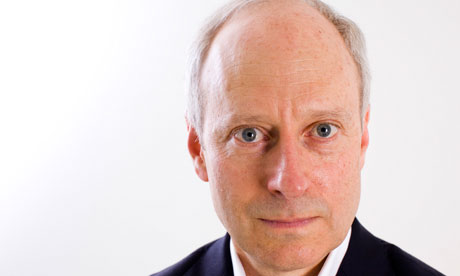At least one consolation remains for Amber Rudd. Drummed out of the Home Office, she can now spend more time in her constituency of Hastings: the same seaside resort she found irresistible because “I wanted to be within two hours of London, and I could see we were going to win it”. Yet Rudd loves her electorate, rhapsodising about some of them as people “who prefer to be on benefits by the seaside … they’re moving down here to have easier access to friends and drugs and drink”.
Relax. I come neither to praise nor to bury Rudd, but to analyse her. Or, rather, to place her in context. What stands out about this latest crash-and-burn is how well it represents the current Westminster elite, even down to the contempt for the poor sods who vote for them.
Rudd exemplifies a political class light on expertise and principle, yet heavy on careerism and happy to ruin lives. All the key traits are here. In a dizzying ascent, she went from rookie MP in 2010 to secretary of state for energy in 2015, before being put in charge of the Home Office the very next year. Lewis Hamilton would kill for such an accelerant, yet it leaves no time to master detail, such as your own department’s targets. Since 2014 Sajid Javid, Rudd’s replacement, has hopped from culture to business to local government, rarely staying in any post for more than a year. Margaret Thatcher kept her cabinet ministers at one department for most of a parliamentary term, but this stepping-stone culture turns urgent national problems – such as police funding and knife crime – into PR firefighting.
Another hallmark of this set is the disposability of its values. Cameron hugs Arctic huskies, then orders aides to “get rid of all the green crap”. As for Rudd, the May cabinet’s big liberal, she vowed to force companies to reveal the numbers of their foreign staff, stoking the embers of racism in a tawdry bid to boost her standing with Tory activists. Praised by Osborne for her “human” touch, she was revealed this week privately moaning about “bed-blocking” in British detention centres.
And when things get sticky, you put your officials in the line of fire. During the Brexit referendum, Osborne revved up the Treasury to generate apocalyptic scenarios about the cost of leaving. While doomsday never came, his tactic caused incalculable damage both to the standing of economists and to the civil service’s reputation for impartiality. Rudd settled for trashing her own officials for their “appalling” treatment of Windrush-era migrants.
None of these traits are entirely new, nor are they the sole preserve of the blue team. At the fag end of Gordon Brown’s government, the sociologist Aeron Davis studied the 49 politicians on both frontbenches. They split readily into two types. An older lot had spent an average of 15 years in business or law or campaigning before going into parliament – then debated and amended and sat on select committees for another nine years before reaching the cabinet.
The younger bunch had pre-Westminster careers that typically came to little more than seven years, often spent at thinktanks or as ministerial advisers. They took a mere three years to vault into cabinet ranks. This isn’t “professionalisation”. It is nothing less than the creation of a new Westminster caste: a group of self-styled leaders with no proof of prowess and nothing in common with their voters. May’s team is stuffed full of them. After conducting more than 350 interviews with frontbench politicians, civil servants, FTSE chief executives and top financiers, Davis has collected his insights in a book. The argument is summed up in its title: Reckless Opportunists.
Davis depicts a political and business elite that can’t be bothered about the collective good or even its own institutions – because it cannot see further than the next job opportunity. In this environment, you promise anything for poll ratings, even if it’s an impossible pledge to get net migration down to the tens of thousands.
Good coverage matters more than a track record – because at the top of modern Britain no one sticks around for too long. Of the 25 permanent secretaries in Whitehall, Davis finds that 11 have been in post less than two years. Company bosses now typically spend less than five years in the top job, down from eight years in 2010. Over that same period, their pay has shot up from 120 times the average salary to 160 times. Bish bash bosh!
There is one field that revels in such short-termism: the City. What emerges from Reckless Opportunists is the degree to which City values have infected the rest of the British elite. Chief executives are judged by how much cash they return to shareholders, even if that means slashing spending on research and investment. Ministers either come from finance (Rudd, Javid) or end up working for it (Osborne and his advisers).
Promise the earth and leave it to the next mug to deliver. Crash around, cash out and move on to the next job. State these new mantras, and you see how Jeremy Corbyn, whatever his other faults, can’t conform to them. You can also see how he poses such a threat to a political-business elite reared on them.
Soon after May moved into No 10, she famously declared: “If you believe you are a citizen of the world, you are a citizen of nowhere. You don’t understand what citizenship means.” The press wrote it up as her threat to migrants. Yet the more I think about it, the more accurately I believe it describes her own shiny-faced team, her own poisonous politics, her own self-serving elite.
Relax. I come neither to praise nor to bury Rudd, but to analyse her. Or, rather, to place her in context. What stands out about this latest crash-and-burn is how well it represents the current Westminster elite, even down to the contempt for the poor sods who vote for them.
Rudd exemplifies a political class light on expertise and principle, yet heavy on careerism and happy to ruin lives. All the key traits are here. In a dizzying ascent, she went from rookie MP in 2010 to secretary of state for energy in 2015, before being put in charge of the Home Office the very next year. Lewis Hamilton would kill for such an accelerant, yet it leaves no time to master detail, such as your own department’s targets. Since 2014 Sajid Javid, Rudd’s replacement, has hopped from culture to business to local government, rarely staying in any post for more than a year. Margaret Thatcher kept her cabinet ministers at one department for most of a parliamentary term, but this stepping-stone culture turns urgent national problems – such as police funding and knife crime – into PR firefighting.
Another hallmark of this set is the disposability of its values. Cameron hugs Arctic huskies, then orders aides to “get rid of all the green crap”. As for Rudd, the May cabinet’s big liberal, she vowed to force companies to reveal the numbers of their foreign staff, stoking the embers of racism in a tawdry bid to boost her standing with Tory activists. Praised by Osborne for her “human” touch, she was revealed this week privately moaning about “bed-blocking” in British detention centres.
And when things get sticky, you put your officials in the line of fire. During the Brexit referendum, Osborne revved up the Treasury to generate apocalyptic scenarios about the cost of leaving. While doomsday never came, his tactic caused incalculable damage both to the standing of economists and to the civil service’s reputation for impartiality. Rudd settled for trashing her own officials for their “appalling” treatment of Windrush-era migrants.
None of these traits are entirely new, nor are they the sole preserve of the blue team. At the fag end of Gordon Brown’s government, the sociologist Aeron Davis studied the 49 politicians on both frontbenches. They split readily into two types. An older lot had spent an average of 15 years in business or law or campaigning before going into parliament – then debated and amended and sat on select committees for another nine years before reaching the cabinet.
The younger bunch had pre-Westminster careers that typically came to little more than seven years, often spent at thinktanks or as ministerial advisers. They took a mere three years to vault into cabinet ranks. This isn’t “professionalisation”. It is nothing less than the creation of a new Westminster caste: a group of self-styled leaders with no proof of prowess and nothing in common with their voters. May’s team is stuffed full of them. After conducting more than 350 interviews with frontbench politicians, civil servants, FTSE chief executives and top financiers, Davis has collected his insights in a book. The argument is summed up in its title: Reckless Opportunists.
Davis depicts a political and business elite that can’t be bothered about the collective good or even its own institutions – because it cannot see further than the next job opportunity. In this environment, you promise anything for poll ratings, even if it’s an impossible pledge to get net migration down to the tens of thousands.
Good coverage matters more than a track record – because at the top of modern Britain no one sticks around for too long. Of the 25 permanent secretaries in Whitehall, Davis finds that 11 have been in post less than two years. Company bosses now typically spend less than five years in the top job, down from eight years in 2010. Over that same period, their pay has shot up from 120 times the average salary to 160 times. Bish bash bosh!
There is one field that revels in such short-termism: the City. What emerges from Reckless Opportunists is the degree to which City values have infected the rest of the British elite. Chief executives are judged by how much cash they return to shareholders, even if that means slashing spending on research and investment. Ministers either come from finance (Rudd, Javid) or end up working for it (Osborne and his advisers).
Promise the earth and leave it to the next mug to deliver. Crash around, cash out and move on to the next job. State these new mantras, and you see how Jeremy Corbyn, whatever his other faults, can’t conform to them. You can also see how he poses such a threat to a political-business elite reared on them.
Soon after May moved into No 10, she famously declared: “If you believe you are a citizen of the world, you are a citizen of nowhere. You don’t understand what citizenship means.” The press wrote it up as her threat to migrants. Yet the more I think about it, the more accurately I believe it describes her own shiny-faced team, her own poisonous politics, her own self-serving elite.



